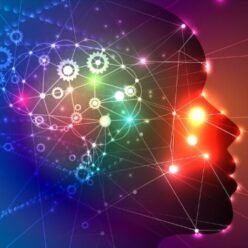Brain injuries are so complex and differ for every person. The key to understanding how to help and support someone after a brain injury is learning about what they’re going through. Having a better understanding of brain injury and its effects can help us empathize more fully and understand the needs. Also, the brain controls and coordinates everything we do, including our movements, feelings, thoughts, and bodily functions. In this section of the webspace, we include some basic literacy, definitions, and key notes that are helpful throughout this webspace.
What is Cognitive Functioning Brain Injury (CFBI)?
What is Cognitive Functioning Brain Injury (CFBI)? CFBI is who we are, a subgroup of brain injury survivors that are cognitively functioning, with symptoms that are not necessarily obvious or visible to others…
What is brain activity disruption phase?
After a brain injury, most patients start experiencing varied brain injury symptoms. This is known as the brain activity disruption phase. This disruption phase is like a rocky road of symptoms, full of distortions and lack of clarity…
What is a neuropsychological evaluation?
It is an assessment of how the brain functions, which indirectly yields information about the functional integrity of your brain. The Neuropsych evaluation involves an in-depth interview and testing…
What is a neural rehabilitation?
Neurorehabilitation is a specialized medical discipline focused on restoring cognitive, physical, and emotional functions in individuals with brain injuries. It encompasses a multidisciplinary approach that may include neurologists…
What is brain capacity?
Think of brain capacity as the battery power which determines how much you can get done, or how far you can go on a daily basis. During the brain disruption phase, CFBI patients often have reduced brain capacity…
Why is brain injury an invisible handicap?
An invisible disability is an informal term for any illness, impairment, or health problem that impacts the individual’s daily life but cannot be immediately seen by other people…
How’s PTSD relates to brain injury?
The intersection between brain injury and post-traumatic stress disorder (PTSD) has become a major focus of attention in recent years. Stimulated largely by injuries sustained in the Iraq and Afghanistan wars, this issue has been debated widely…
How’s Long-Covid relates to brain injury?
Early in the COVID-19 pandemic, there was much discussion and warning about the potential impact of the virus on those with underlying pre-existing conditions. Now, with a 3 year learning curve, we have a better understanding…
What is the Adaptive Challenge Approach?
It is a way to help us deal with difficult problems that have no direct path to resolution. This approach is all about gathering the best knowledge available, in order to learn and understand what we are dealing with…
